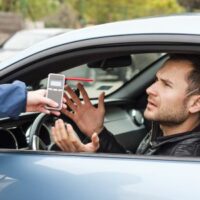4 Myths About Field Sobriety Tests In Delaware DUI Cases

Until the number of drunk driving accidents reaches zero, you can expect that law enforcement will continue to pursue motorists who violate laws on driving under the influence of alcohol. Statistics from the Delaware Office of Highway Safety (OHS) show that police take their responsibilities for public safety very seriously, as officers arrest more than 4,000 individuals every year for DUI. The circumstances surrounding these arrests are unique to each individual case, but motorists are often charged after being pulled over for a traffic violation or maneuvers that suggest impairment.
In addition, drunk driving charges arise out of the field sobriety tests (FSTs) that police continue to employ to apprehend offenders. Unfortunately, there is a great deal of misinformation that persists about these encounters, leading to some confusion about how they work. It is critical to retain a Wilmington DUI test defense attorney for legal help, but some details should debunk the myths about field sobriety tests.
- You do not have a choice when police request a field sobriety test. Officers often request that drivers perform physical and/or mental agility exams to assess their level of impairment. They may ask after pulling you over on suspicion of DUI, but police also set up roadside checkpoints during high-risk periods. Regardless of the circumstances, you are not required to perform the tests. Unlike Delaware’s implied consent law, there are not separate penalties for refusal to do an FST.
- You cannot be arrested for DUI after refusing a field sobriety test. This myth may seem confusing in light of #1, but keep in mind the standard for making a drunk driving arrest: Police must have probable cause that you were operating a vehicle while under the influence of alcohol. Failure or weak performance on FSTs is just one piece of evidence they can use to support probable cause. Bloodshot eyes, slurred speech, and the odor of alcohol may also lead to charges.
- It is tough to fight the results of a field sobriety test. In truth, there are many strategies for defending a DUI case based upon your performance on an FSTs. These tests are very subjective and there are numerous factors that can lead to a poor finding even in the absence of alcohol. For instance, darkness and weather conditions can make it difficult to do well in the Walk and Turn test. You may have a medical condition that prevents you from performing the Horizontal Gaze Nystagmus, which assesses your eye movement in tracking an object. These circumstances and others can make the results of an FST questionable, preventing a finding of guilt beyond a reasonable doubt.
Get in Touch with a Delaware DUI test Defense Lawyer Today
Clarification may dispel some of the myths about field sobriety tests, but skilled legal counsel is still essential if you are facing drunk driving charges. To learn how our team can help, please call Attorney Michael W. Modica in Wilmington, DE. You can schedule a consultation by calling 302.600.1262 or visiting our website.
Resource:
ohs.delaware.gov/impaired.shtml#:~:text=The%20Statistics%20Don’t%20Lie,arrested%20for%20DUI%20in%20Delaware&text=76%25%20of%20those%20arrested%20for,alcohol%20or%20drug%20related%20crash

